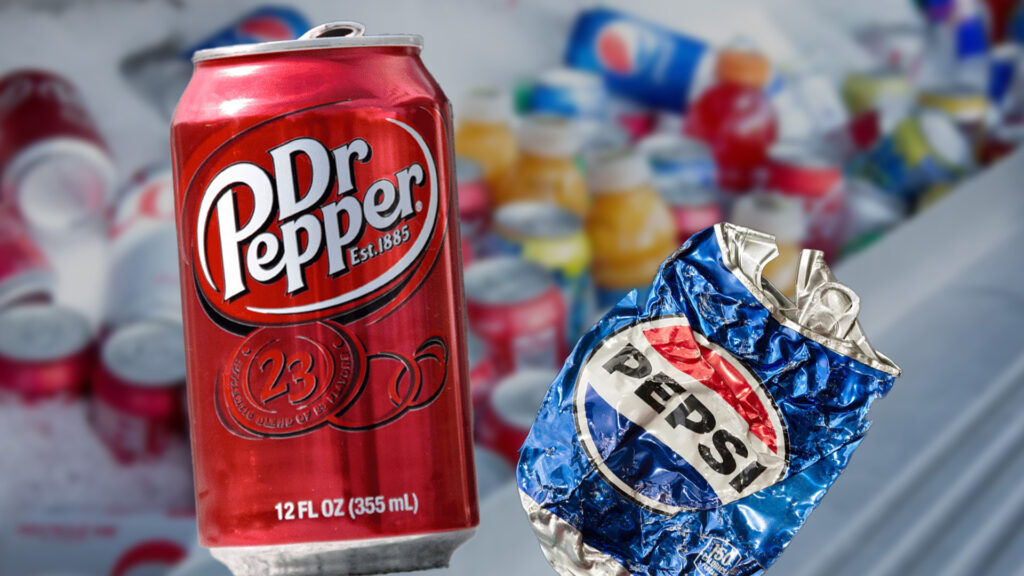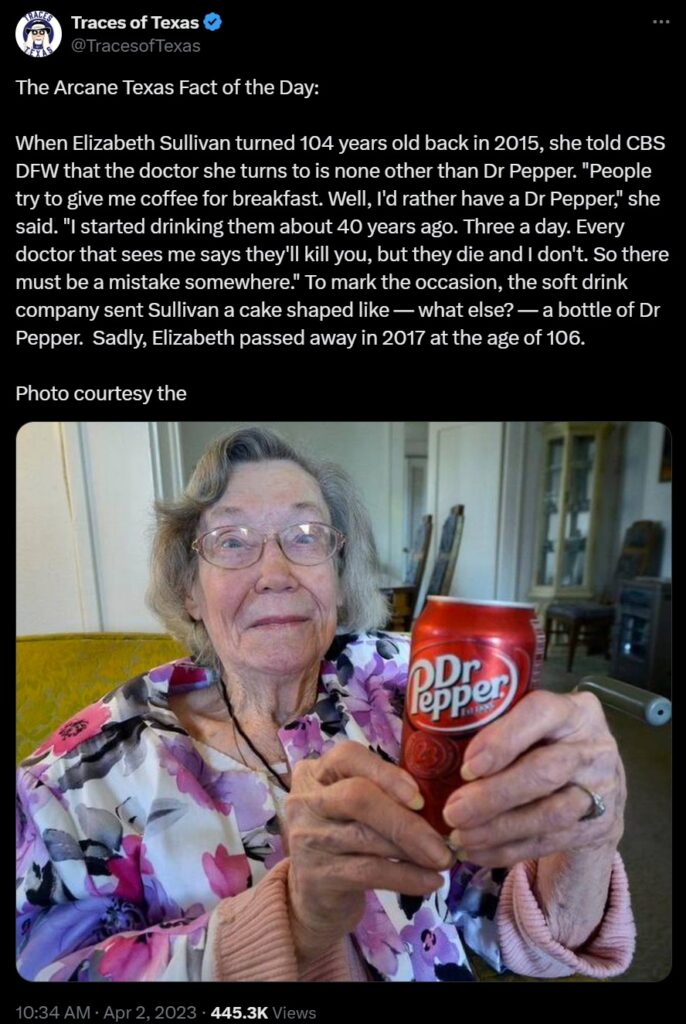Brand differentiation matters. It is the single factor that most determines success, not just for products and services, but for institutions and people. Brand differentiation is why no one can touch Coca-Cola (19.2% market share). Brand differentiation is also why Dr. Pepper has inched past Pepsi for the #2 spot, with 8.34% market share.

Dr Pepper has historically been an also-ran brand, with Pepsi the #1 challenger to Coca-Cola. The soda market is declining, and growth happens in inches. But Dr Pepper is up 2.33-points since 1998. Pepsi’s share is down by more than double that amount—5.72 points. Pepsi ad dollars have been cut 46% this year and its decades-long sponsorship of the Superbowl half time show cancelled. Pepsi has just announced that it is closing 4 bottling plants and laying off 400 workers.
The reason Pepsi is down and Dr. Pepper up is brand differentiation. Pepsi is positioned as a me-too brand. It tries to communicate that it is a younger, more dynamic alternative to Coca-Cola. It has publicized research to show that when tested blind, people prefer the taste of Pepsi to Coca-Cola. It has attempted to redo and modernize its brand identity.
None of it has worked. Pepsi is not seen as more dynamic, but a look-alike and, for most people, less desirable alternative to Coca-Cola. People still prefer to drink Coca-Cola, especially since, after a failed attempt to introduce ‘New Coke’, the brand rethought and innovated successfully with the launch of Coke Zero.
Pepsi’s innovations continued to be copy-cat and didn’t make a difference. The brand identity make-over was an abject failure. The result was something that looked like the Korean flag. It was derided. Pepsi was forced to return to a logo that was similar to the old one, but harks back to even older versions, featuring the name more prominently.
Its tone-deaf ad, featuring Kendall Jenner, a rich white woman as a representative of the people, and depicting protests as social outings, caused a huge backlash. For more on the advantages and perils of celebrity brands, see our article on celebrity endorsement.
Furthermore, PepsiCo has been paying more attention on its faster growing snack brands, Doritos, Cheetos and Tostitos, and other drinks it has bought, such as Rockstar energy beverages.
Meanwhile, Dr Pepper never entered the Cola Wars and focused on brand differentiation. It went its own way. It has always been positioned as something completely different, still a soda but a weird and idiosyncratic one. It’s peppery and claims to blend 23 different flavors. It’s had a small but devoted group of fans, not necessarily young. Elizabeth Sullivan aged 104 famously proclaimed Dr Pepper to be the secret to her longevity.
Why the sudden surge? Why has Dr Pepper overtaken Pepsi? The Dr Pepper brand has all the ingredients to appeal not only to the 104-year-olds but also to the young, and has been exploiting them cleverly.
Gen Z is a generation that, unlike the millennials and Gen X, has different goals from predecessor generations. It’s been forced by circumstances. Gen Z was in high school and watched, powerless from the sidelines how previous generations have messed up the world, especially by destroying the climate for those who come after it. The results are now coming home to roost, with hurricanes and temperatures reaching a point with successions of disasters. Two record storms for Florida and other southern US states in rapid succession is just the latest example. Crops are moving north, and wine growing is now possible in places like England. Gen Z watched the 2008 recession and worried.
The angst from the now unpredictable world has caused Gen Z to seek out the disruptive and different. The fact that they are the first digitally native generation helps, especially with the use of TikTok. When they find a brand that is excitingly differentiated, word spreads fast and sales surge, even for totally unknown brands. Think about the potential they can create for Dr Pepper. Dr Pepper certainly isn’t unknown. It’s the oldest soda brand in the US, around since 1885, as it proudly declares on the can. But it’s unique and it’s disruptive.
Gen Z has turned to Dr Pepper as a truly different alternative to Coca-Cola. And Dr Pepper is innovating. It launched Dr Pepper Strawberries and Cream last year, and trendy limited time flavors like Dr Pepper Creamy Coconut. And Dr Pepper is proactive. It sponsors college football, and its advertising consists of ongoing stories about Fansville, featuring football obsessed fans in a fictional town, a parody of high school sports dramas. It partnered with nail polish wearing star quarterback Caleb Williams to produce a nail polish kit, FANicures. Talk about being different! It’s extremely active on TikTok.
And the results are striking. Dr Pepper is the brand of choice for Gen Z. It is now more popular among younger consumers than Coca-Cola. It’s even appealing to the very young. An 11-second TikTok video showing a toddler sobbing in full meltdown, “I want Dr Pepper,” had 2.4 million views. Dr Pepper Strawberries and Cream had $300 million in sales in 2024. There have been TikTok crazes, like drinking Dr Pepper with pickles. There’s a trend to all things spicy, and Dr Pepper fits in perfectly.
The lesson for all brands is, you can position yourself as a me-too and it may grow sales in the short term. But these results won’t be sustained over the long term anymore.
What are the characteristics of an iconic brand?
Differentiation is first and foremost. A study of what makes great creativity being conducted by MASB (the Marketing Accountability Standards Board has already concluded that differentiation is the number one measure of brand success and sales growth. The importance of this is accentuated for Gen Z and the next generation, Gen A, cares even more. So, if you want a successful brand for the future, differentiate, differentiate, differentiate. Don’t be afraid to break the mold. Don’t be afraid to take risks. They won’t always come off, but when they do, you’ll hit it big.
Of course, you also need to have a decent product, be relevant to your target audience and have a communications strategy that matches your goals. But all this is secondary. Differentiation comes first.
If you want to learn more about differentiating your brand, get in touch with Presciant.
